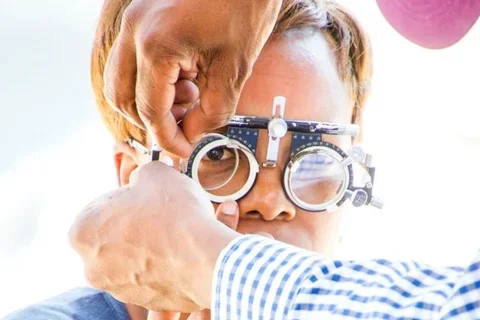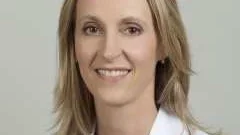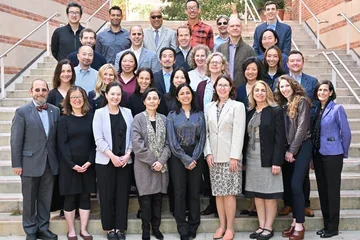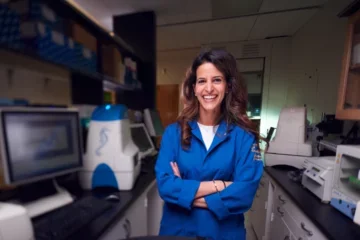Optometrist vs Ophthalmologist - What Is the Difference?
A UCLA Doctor Explains

A Day in the Life of Dr. Jo Ann Giaconi, Ophthalmologist at the Stein Eye Institute
"I'm going to the eye doctor." It's a phrase we're all familiar with, and many of us probably say it without giving it a second thought. But what sort of eye doctor are we talking about? And optometrist vs. ophthalmologist, and what is the difference?
Optometrists and ophthalmologists are both eye doctors, but these specialists follow different educational paths and different scopes of practice.
Here, Jo Ann Giaconi, MD, an ophthalmologist at the Stein Eye Institute, helps shed some light on the differences between an optometrist and an ophthalmologist.
Becoming an Ophthalmologist
An ophthalmologist is a physician who specializes in eye health and eye care after graduating from a four-year medical or osteopathic school. In medical school, ophthalmologists study the human body and how it reacts to injury or illness and learn how to detect disease throughout the body.

"By the end of four years, medical students must decide if they want to focus on general internal medicine, family practice, surgery or some subspecialty of medicine and surgery," Dr. Giaconi explains. Those interested in a career in ophthalmology apply for a one-year internship in medicine or surgery, followed by a three-year residency in ophthalmology. "It is in residency that future ophthalmologists are fully immersed in taking care of the eye and visual systems, and they also learn how to do eye surgery," Dr. Giaconi says.
After completing residency, ophthalmologists can choose from a variety of professional options, from setting up private practice or joining a larger practice, to working in hospitals and universities. Ophthalmologists can fit patients for glasses or contact lenses, examine patients, make diagnoses of the eye and body (as it relates to the eyes), and treat eye diseases or conditions medically or surgically. Some ophthalmologists specialize even further, choosing from areas such as pediatric ophthalmology, glaucoma surgery or retina surgery, to name a few.
(What Does an Ophthalmologist Do? Click the link to learn more...)
An Optometrist's Journey
The path to becoming an optometrist is not as long as an ophthalmologist's, but it still takes a minimum of seven to eight years to complete. Usually, a student must have completed their bachelor's degree (although some schools accept three years of college) before applying to a four-year optometry program.
The program provides two years of theory on eye health, drugs related to treating eye conditions, and the limited number of procedures that optometrists may perform in some states. Students then spend two years learning how to do eye examinations, how to fit glasses and contact lenses to correct vision, and how to treat some eye disorders and diseases. "A small number of optometry students choose to do an additional one-year optometric residency so they can see more pathology (abnormalities) and feel more comfortable with diseased eyes," Dr. Giaconi says.
After they finish optometry school, graduates usually join an optometrist practice or work in a chain store that has an optometry department, or they may set up their own practice. Some choose to teach at a school of optometry or do research in vision.
Optometrist vs Ophthalmologist: Choosing a Career
For people who enjoy working with the public, both professions are great options. They allow for one-on-one connections and the feeling of satisfaction that comes with providing a needed service.
Dr. Giaconi points out, though, that becoming an ophthalmologist provides many opportunities that might not exist otherwise, through academics, research, the industry and working with patients. "Many ophthalmologists are involved in research and innovation that pushes the field forward," she says.
According to Dr. Giaconi, the future is bright for doctors who specialize in ophthalmology. "There is a lot of new and exciting technology to help us perform surgery," she says. "There are now revolutionary medications for treating macular degeneration. Telemedicine is hitting ophthalmology, and it may prove useful in improving access for the increasing number of diabetics and elderly patients reaching the age when eye conditions become common."



